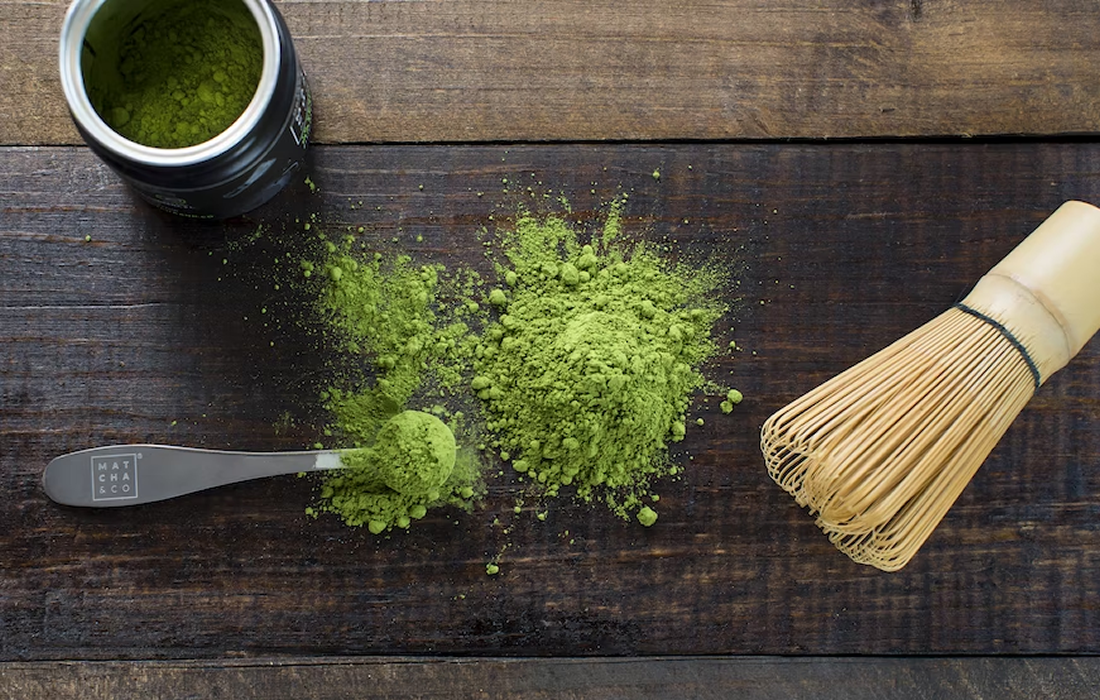Nutrition and Supplements
Could Matcha Tea Have Anti-Depressant Properties?
Depression is a common mood disorder, affecting 5% of adults worldwide. Whilst effective treatments do exist, some patients experience unpleasant side effects, and an estimated 30.9% of patients have either no or a poor response to medication.
Researchers are working to understand complementary and alternative therapies that may aid in treating depression.
A recent study published in the journal Nutrients looked at the potential antidepressant effect of matcha tea powder and the underlying mechanisms involved.
They found that matcha tea had antidepressant-like effects in a mouse model of depression.
Depression is a mood disorder that can impact a person’s ability to go about everyday life. Someone with depression can experience a wide array of symptoms, including a persistent feeling of emptiness.
The exact cause of depression remains unknown. However, certain risk factors can increase someone’s chances of developing depression, and such factors include experiencing traumatic events or having other family members with depression.
Researchers are still working to understand the underlying components of depression, many of which are still unclear. One area of interest is how neurotransmitters like serotonin and dopamine impact depression.
Dopamine is a chemical messenger that impacts mood and motivation, and experts believe that dopamine levels may contribute to depression.
This particular study looked at the effectiveness of matcha tea as a treatment for depression in mouse models. The researchers conducted their experiment on mice that they had placed in social isolation to see how this impacted the effectiveness of the treatment.
Moreover, the researchers compared the effects in two different genetic groups of rodents: C57BL/6J strain mice, a stress-susceptible strain commonly used in animal studies, and BALB/c strain mice, which are more stress-tolerant.
After a week in isolation, mice from each group received an administration of matcha tea powder. Whilst it is not possible to replicate the complexity of depression in a mouse model, the researchers used a test called the tail suspension test to measure depression-like behavior in mice.
In the stress-susceptible C57BL/6J strain, matcha tea was associated with an improvement in depression-like symptoms in the tail suspension test.
In contrast, matcha tea had no impact on the stress-resistant BALB/c mice.
The researchers then examined how the matcha tea powder impacted the mice’s brains. They found that matcha tea appeared to impact systems of dopamine in the C57BL/6J mice.
These results indicate that the impact of matcha tea has to do in part with its influence on certain areas of the brain.
However, the effectiveness appears to depend on actual mental state, as the matcha tea powder only helped the C57BL/6J mice who were under high mental stress because they had been socially isolated.
The results of the study suggest matcha tea powder has the potential to be a useful avenue for further research in the quest for new treatments for depression.
Tzall noted that “[r]esults like this are always encouraging regarding finding natural or alternative means of alleviating depression or other mental health issues.”
“Just as is the case with medication, this will not be a panacea to depression or anxiety,” he nonetheless cautioned. “It might serve as an adjunctive form of treatment.”
Dr. Giordano offered a similar view and explained that “[m]atcha extract may be useful and have value in reducing certain signs and symptoms of depression that appear to be mediated, at least, in part by the brain’s dopamine system.”
However, animal studies are often a critical but limited step in data collection. Because the study was performed in mice, a lot more data is required to understand how applicable the results are to humans.
Sources:
Kurauchi Y, Ohta Y, Matsuda K, Sanematsu W, Devkota HP, Seki T, Katsuki H. Matcha Tea Powder’s Antidepressant-like Effect through the Activation of the Dopaminergic System in Mice Is Dependent on Social Isolation Stress. Nutrients. 2023; 15(3):581. https://doi.org/10.3390/nu15030581
Nutrients (2023). Could matcha tea have anti-depressant properties? Retrieved March 22, 2023 from https://www.medicalnewstoday.com/articles/could-matcha-tea-have-anti-depressant-properties
Image from:
https://unsplash.com/photos/pC16vUGYCL4

